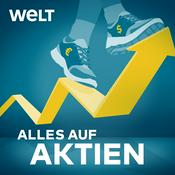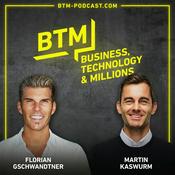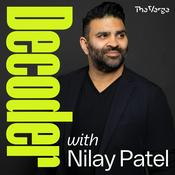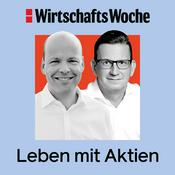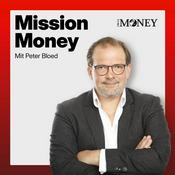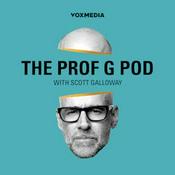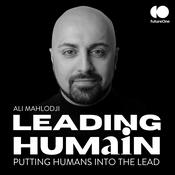38 Episoden

Why So Much Food is Lost: Inside Global Food Supply Chains
17.12.2025 | 54 Min.
Global food systems produce more than enough to feed the world—yet nearly one-third of all food is lost or wasted. Much of that loss happens far upstream, driven by perishability, cold chain failures, infrastructure gaps, climate pressures, and supply chain inefficiencies that span continents. In this episode, we’re joined by Dr. Chris Mejía, founder and director of the MIT Emerging Market Economies Logistics Lab, along with Drs. David Hidalgo and Mauricio Gámez, researchers who model solutions for supply chain issues. They unpack why food supply chains are uniquely vulnerable to disruption, especially in emerging markets, and where the biggest opportunities exist to reduce loss. From circular economy models and food recovery strategies to AI-driven forecasting, optimization, and community-based distribution networks, the conversation explores how better logistics, smarter data, and cross-sector collaboration can help redesign food supply chains that are more resilient, sustainable, and equitable.

Weaponized Supply Chains: U.S.-China Trade and National Security
18.11.2025 | 41 Min.
Rising geopolitical tensions and global trade volatility have revealed a key power struggle: supply chains are a matter of national security. This year’s annual report from the congressional U.S.–China Economic and Security Review Commission warns that China has begun weaponizing key supply chain chokepoints, from critical minerals to foundational semiconductors, creating risks that reach far beyond trade. In this episode, we’re joined by Livia Shmavonian and Josh Hodges, two commissioners of the U.S.–China Economic and Security Review Commission, along with Professor Yossi Sheffi, Director of the MIT Center for Transportation and Logistics. They discuss key findings from this year’s report: why companies have been slow to recognize the strategic nature of their dependence on China, how subsidies and overcapacity distort global competition, and why innovation remains the United States’ greatest advantage. From U.S. manufacturing limitations to critical mineral processing to market access in China, the conversation explores what’s at stake, what must change, and how companies and policymakers can prepare for a future where supply chain strategy is inseparable from national security. You can read the full report here.

Sustainability Still Matters
09.10.2025 | 36 Min.
As global supply chains face new waves of political uncertainty, regulatory change, and economic pressure, one thing remains clear: sustainability still matters. The latest State of Supply Chain Sustainability Report from the MIT Sustainable Supply Chain Lab reveals that despite federal environmental rollbacks and shifting investor priorities, companies continue to see sustainability as central to long-term success. In this episode, we’re joined by Dr. Josué Velázquez Martínez, director of the lab, and Dr. Sreedevi Rajagopalan, a research scientist in the lab. They unpack key findings from this year’s survey—why 80% of firms say sustainability is vital to their future, where companies stand in tracking Scope 3 emissions, and which energy sources could redefine sustainable freight transportation. From biofuels and hydrogen to the data behind carbon accounting, the conversation explores what’s driving progress and why collaboration may be the most necessary sustainability strategy of all.

What Coffee, Cobalt, and Mangoes Have in Common: Introducing the Emerging Market Economies Logistics Lab
18.9.2025 | 43 Min.
Emerging markets play an essential role in global supply chains, providing much of the food, raw materials, and labor that keep the world running. But they also face unique challenges: fragmented systems, limited infrastructure, and volatile economies. At the same time, these regions hold immense potential for innovation, resilience, and growth if their logistics systems can adapt to meet rising pressures from climate change, geopolitical shocks, and shifting consumer demands. In this episode, we’re joined by Dr. Chris Mejía, Founder and Director of the MIT Emerging Market Economies Logistics Lab (EMeL), along with Research Affiliates Dr. Edgar Gutierrez and Isabel Agudelo. They discuss the launch of this new lab at the MIT Center for Transportation and Logistics, its mission to strengthen supply chains across the Global South, and the human decisions that ultimately shape logistics outcomes. From the fate of mangoes in Ghana to cobalt in the Congo, the conversation reveals why emerging markets matter to everyone—and how building trust may be the biggest logistics challenge of all.

The Road to Vehicle Automation: How Far Are We?
15.7.2025 | 52 Min.
Self-driving cars have been heralded by many as the future of transportation—promising safer roads, reduced traffic, and greater mobility for all. Yet despite rapid advancements in technology and a surge in assistive driving features, acceptance of full vehicle automation remains elusive. As the public grapples with questions of trust, safety, and responsibility, the road to widespread adoption of automated vehicles is anything but straightforward. The stakes are high: how we navigate this transition could redefine the way we move for generations to come. So, how far are we from acceptance, adoption, and implementation? In this episode, we’re joined by the co-directors of the Advanced Vehicle Technology (AVT) Consortium, hosted within the MIT AgeLab at the MIT Center or Transportation & Logistics: Dr. Bryan Reimer, Dr. Pnina Gershon, and Dr. Bruce Mehler. They explore key insights from their recent research, the role of data in shaping safer and smarter mobility solutions, and how the consortium is addressing critical questions around driver behavior, automation readiness, and industry collaboration as they celebrate their 10th anniversary year.
Weitere Wirtschaft Podcasts
Trending Wirtschaft Podcasts
Über MIT Supply Chain Frontiers
Höre MIT Supply Chain Frontiers, Doppelgänger und viele andere Podcasts aus aller Welt mit der radio.at-App
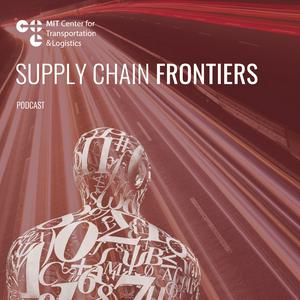
Hol dir die kostenlose radio.at App
- Sender und Podcasts favorisieren
- Streamen via Wifi oder Bluetooth
- Unterstützt Carplay & Android Auto
- viele weitere App Funktionen
Hol dir die kostenlose radio.at App
- Sender und Podcasts favorisieren
- Streamen via Wifi oder Bluetooth
- Unterstützt Carplay & Android Auto
- viele weitere App Funktionen


MIT Supply Chain Frontiers
App laden,
loshören.


